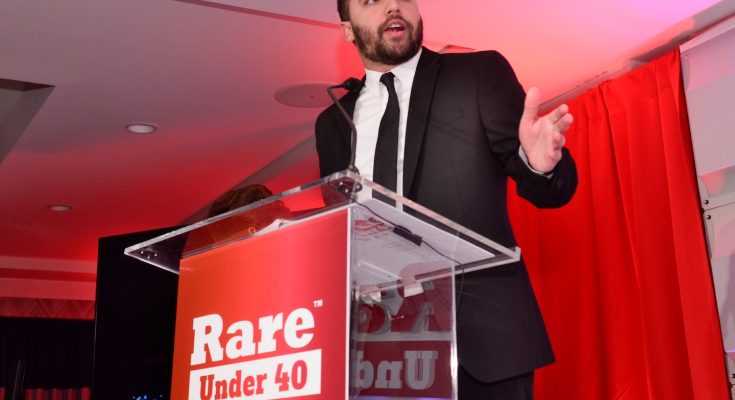Lowery resigned after allegations that he made inappropriate sexual comments in meetings with students and unwanted sexual advances toward journalists, records show.
After a fast rise to media stardom, Wesley Lowery, a Pulitzer Prize-winning journalist and best-selling author, arrived on American University’s Washington, D.C., campus in 2023 to fanfare and expectations, becoming only the second top editor of an investigative workshop founded by a journalism pioneer.
Less than two years later, Lowery is out amid controversy. He resigned last week after allegations from students and faculty that he made inappropriate sexual comments in private meetings with students and unwanted sexual advances and actions toward journalists, according to interviews and records reviewed by The Washington Post.
Lowery, 34, is a former reporter for The Post and “60 Minutes,” the author of two books and a commentator on civil rights, policing and journalism. Since 2023, he had served as a tenured professor and executive editor of American’s Investigative Reporting Workshop, which partners with publications across the country on reporting projects. In announcing his hire, American billed him as “one of the most consequential journalism innovators and educators of our time.”
His resignation came after The Post asked him and the university about complaints from students, professors and IRW’s partner journalists about his behavior. (The Columbia Journalism Review first reported that his resignation came amid Title IX complaints.) Lowery and a university spokesman said he resigned voluntarily but declined to say why.
Two professors filed five complaints against Lowery on behalf of six women, the records show, including to the university’s Office of Equity and Title IX, which enforces the federal law barring sex-based discrimination and harassment at schools. One student filed her own complaint.
University officials found that three of the complaints were not potential Title IX violations, records show. A fourth was closed when a student denied the allegations made by one of the professors, according to records reviewed by The Post, and a fifth after the student involved declined to be interviewed. The result of the sixth was unclear.
In an interview last week, a day before his exit was announced, Lowery denied the allegations made in the complaints. He said he was only contacted about one of the complaints, after the Title IX office declined to take it up. “I have never been under Title IX investigation,” he said.
“I’ve got a very clear track record of opening doors for people and never doing anything to close doors on anyone,” he said. “That doesn’t excuse any behavior that makes anyone uncomfortable or causes any harm.”
Lowery broadly blamed a colleague for “attempting to drum up as many complaints as possible, in some cases for the explicit purpose of leaking them to attempt to publicly attack and embarrass me.”
That colleague, former Post journalist and adjunct professor Cara Kelly, filed her own hostile-work and Title IX complaints last year, accusing Lowery of mistreating students and retaliating against her. Kelly said she was told they did not meet the Title IX office’s standards and does not know what came of her HR complaints.
Kelly left IRW last summer, saying in her resignation letter that she was “increasingly alarmed” by Lowery’s behavior. In interviews with The Post, she stood by her actions, saying she was trying to protect students and journalists.
One of the professional journalists mentioned in Kelly’s resignation letter was employed by a small news organization and, in July 2023, began working with IRW staffers to craft a grant application for $175,000 to fund a reporting project, including $50,000 for the journalist.
The woman, who is early in her career, spoke with The Post on the condition of anonymity, citing concerns about her career prospects if she spoke out. (The Post does not typically name victims of alleged sexual misconduct unless they asked to be named.) She shared the same account last year with Kelly, who included it in her resignation letter. But the letter did not include the woman’s name, and the woman said she never heard from investigators.
Though she was friends with Lowery, the woman said she had previously rebuffed his advances and “was expecting to be taken seriously.” But after meeting for dinner and drinks to discuss the project and catch up, the woman said, Lowery insisted that he wanted to enter the woman’s apartment, adding that if she didn’t take him upstairs, he would feel that he was being “used” for the IRW grant money, the woman recalled. She took that to be an offer of a sexual quid pro quo over the future of her reporting contract, meaning that Lowery would cut off the project if she didn’t invite him into her apartment.
She relented, she said, telling Lowery he could come inside for a brief tour and reiterating that she wasn’t interested in sex. Once inside, she said, Lowery spent several hours propositioning her, trying to kiss her and attempting to take off her clothes, only to be rebuffed each time. He eventually left.
The woman talked to her boss at her news organization and said they should drop out of the IRW collaboration because she was unable to work with Lowery after the incident — a decision the woman said cost her the tens of thousands of dollars she had counted on from IRW. She and her boss ended the partnership, the woman said, citing work on an unrelated project as an excuse to avoid what she feared could be retaliation from Lowery.
In an interview, the woman’s boss confirmed that the woman shared her account at the time and that they lied to IRW about why they were ending the collaboration.
The woman told IRW’s Kelly about the alleged incident last spring. After Kelly summarized the allegations in her resignation letter, Lowery sent the woman an email, which was reviewed by The Post.
“I just want to say that I never intended to use the prospect of us working together to leverage anything romantic between us,” he wrote. “Given the sometimes romantic nature of our personal relationship, I thought we could balance working together while still figuring things out. Clearly I was wrong, and I screwed up the balance of that. I’m sorry that anything I did or said made you feel that one was contingent on the other.”
Lowery told The Post that he disputed the woman’s account of the evening, saying that they kissed consensually before leaving the dinner meeting and that he did not attempt to remove her clothes. He left her apartment when she asked, he said, and he denied saying he would feel “used” if he wasn’t invited into her apartment.
“It’s clear that [she] experienced that night differently than I thought she had initially, and certainly was different than what I intended,” Lowery said. “But I also understand that my intentions are not the only thing that matters, and impact matters a lot as well.”
Sophia Lehrbaum, a senior at the University of Michigan, filed her complaint with the Title IX office last summer. After Lehrbaum went into Lowery’s office to ask him for advice during an internship, according to her Title IX complaint, he told her to close the door. Then she asked him how to avoid unduly alarming potential subjects of a story she was working on.
“Well, Sophia, when you go on a date, you don’t just ask ‘Do you want to f—?’” Lowery responded, according to the complaint. “You build up to it.”
Another student alleged that he compared the process of making interview subjects comfortable to asking for consent during sex, the records show, while a third alleged he lit a candle and sat next to her on the couch, making her uncomfortable.
Lowery denied the students’ allegations. He said he only referenced sex when talking about consent and sex education and that his relationships with journalists connected to IRW were personal and consensual. He always lights candles, he said, and has never closed his office door unless a student asked him to for privacy.
One student appeared to push back after Kelly told school officials that Lowery’s relationship with her appeared inappropriately close. In an email, the student wrote that the allegation was false and that Kelly had acted “in bad faith.” Kelly stood by her decision to file the complaint, saying she was fulfilling her obligation as a mandated reporter.
Lowery rose to national prominence in 2014 as a reporter for The Post while covering racial-justice protests and riots in Ferguson, Missouri. He went on to win a Pulitzer Prize as a reporter on “Fatal Force,” a Post project documenting police shootings across the country.
Lowery resigned from The Post in 2020 but has continued to occasionally write for the paper, including an Opinion piece in December. A spokeswoman for The Post declined to comment, citing its policy against discussing personnel matters.
In addition to his roles at American, Lowery until the last week was a co-chair of this year’s National Association of Black Journalists convention and a senior instructor at the Allbritton Journalism Institute, a nonprofit set up to train young political reporters. He resigned from both posts after Columbia Journalism Review’s report about the complaints, the institute and the association said.
After a two-year stint at “60 Minutes,” Lowery, in July 2023, started at IRW, which was founded in 2008 by Charles Lewis, a former “60 Minutes” producer who’s considered a pioneer of contemporary investigative journalism.
IRW employs a staff of professional journalists and student interns. It also pays freelancers to produce additional articles, often by partnering with IRW fellows or reporters from larger media outlets. A number of IRW interns have worked at The Post through a partnership with the university, reporting and writing stories under the guidance of Post editors.
Lowery said online last week that he planned to return to reporting. Lynne Perri, a journalist and adjunct professor, is the center’s interim executive editor.
“I was really hopeful when we hired Wesley, and I feel very sad that it didn’t work out,” Perri said in a statement. “My goal as the interim executive editor is to make IRW a great experience for students again and to restore relationships with our partners.”

